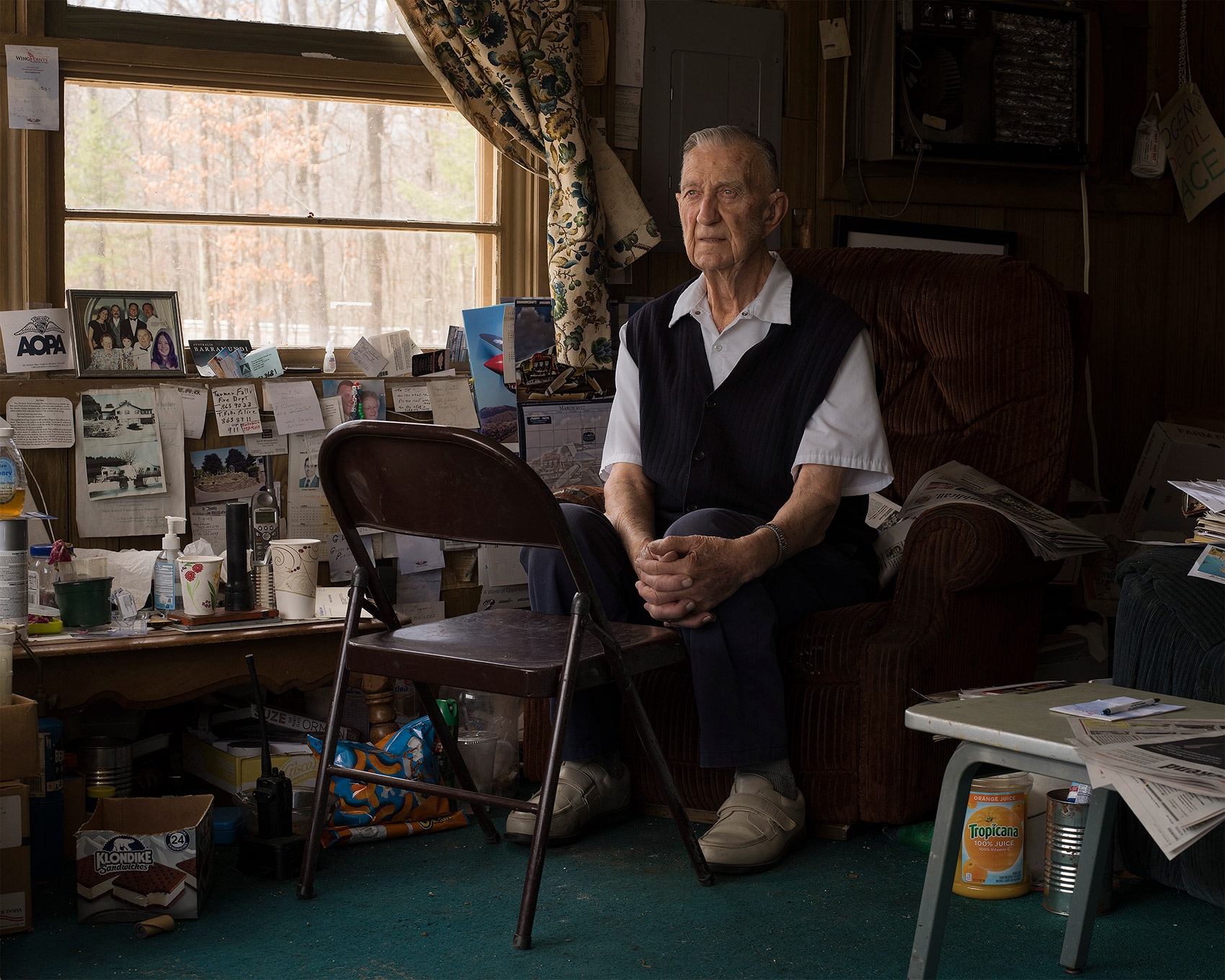Nick Meyer
The Local
The door to the lounge is always unlocked, but it is rare that anyone is around.
The carpet, blue or green, or somewhere in between, worn down to its glue backing, stained with coffee spills dating back sixty years.
The walls, covered in photographs, postcards and newspaper clippings and every tabletop stacked high with papers and maps. The only thing that looks new is half a bottle of Tropicana orange juice under the coffee table.
The airport services a rural area. The runway, little more than a strip of dirt and the planes only big enough for a passenger or two. It is a familiar place to me. A place I’d grown up visiting with my father.
Today it’s not empty. Charlie Bohanawicz is there. The 92-year-old proprietor of the airport. I’ve met him before, but only in passing. He looks smaller than I remember, shrunken, his eyes a washed over greyish blue. I reintroduce myself and he acknowledges me with remembrances of my dad. Pleasantries quickly set aside, he tells me of his has cancer; Mesothelioma, and that he can’t wait to die.
Charlie continues this monologue, telling me how this world doesn’t work anymore, how the towns have changed, how he never sees his grown children who live nearby.
He never makes eye contact, but rather, stares through me or over me or beyond me. Maybe there are tears welling in the corner of those steely eyes.
I thank him for letting me take photographs and tell him to be well. He continues to look through the faux wood walls of the airport lounge, raises a hand to say goodbye, and grumbles something inaudible. The bell on the door Jingles as it closes behind me.
![]()
The Local
The door to the lounge is always unlocked, but it is rare that anyone is around.
The carpet, blue or green, or somewhere in between, worn down to its glue backing, stained with coffee spills dating back sixty years.
The walls, covered in photographs, postcards and newspaper clippings and every tabletop stacked high with papers and maps. The only thing that looks new is half a bottle of Tropicana orange juice under the coffee table.
The airport services a rural area. The runway, little more than a strip of dirt and the planes only big enough for a passenger or two. It is a familiar place to me. A place I’d grown up visiting with my father.
Today it’s not empty. Charlie Bohanawicz is there. The 92-year-old proprietor of the airport. I’ve met him before, but only in passing. He looks smaller than I remember, shrunken, his eyes a washed over greyish blue. I reintroduce myself and he acknowledges me with remembrances of my dad. Pleasantries quickly set aside, he tells me of his has cancer; Mesothelioma, and that he can’t wait to die.
Charlie continues this monologue, telling me how this world doesn’t work anymore, how the towns have changed, how he never sees his grown children who live nearby.
He never makes eye contact, but rather, stares through me or over me or beyond me. Maybe there are tears welling in the corner of those steely eyes.
I thank him for letting me take photographs and tell him to be well. He continues to look through the faux wood walls of the airport lounge, raises a hand to say goodbye, and grumbles something inaudible. The bell on the door Jingles as it closes behind me.
-that a man in himself is a city, beginning,
seeking, achieving and
concluding his life in a way which
the various aspects of a city may
embody-
-William Carlos Williams

Nick Meyer
(B.1981) lives in Western Massachusetts. He is the recipient of the
Pace Gallery Award and the Barclay Simpson Prize. he earned his BFA at
Massachusetts College of Art and his MFA from California College of the
Arts. He has published two books: “Pattern Language” (Brick Publishing,
2010) and "Either Limits or Contradictions", (Daylight, 2017) his work
has appeared in TIME Lightbox, Huck Magazine, Musee, L'oel De La
Photographie, The New Yorker, Wired, Harpers and Ain't-Bad. His third
book of photographs, “The Local” will be published in 2021 by MACK. His
work has been shown both nationally and internationally and is included
in numerous private collections.
